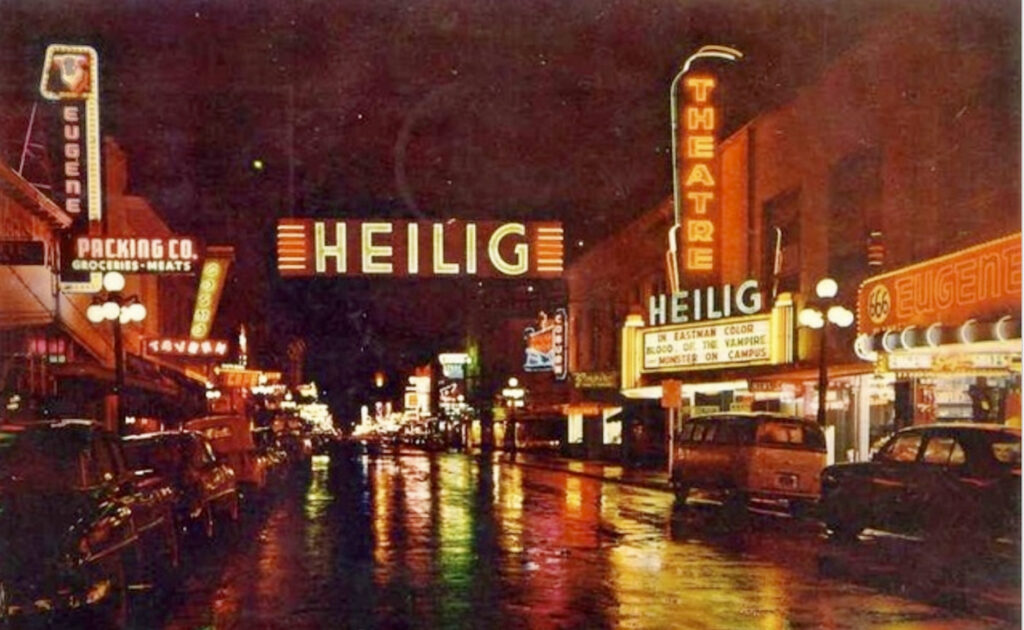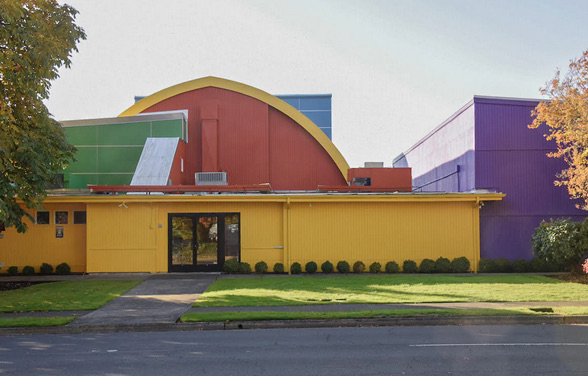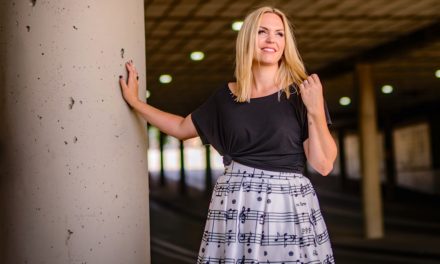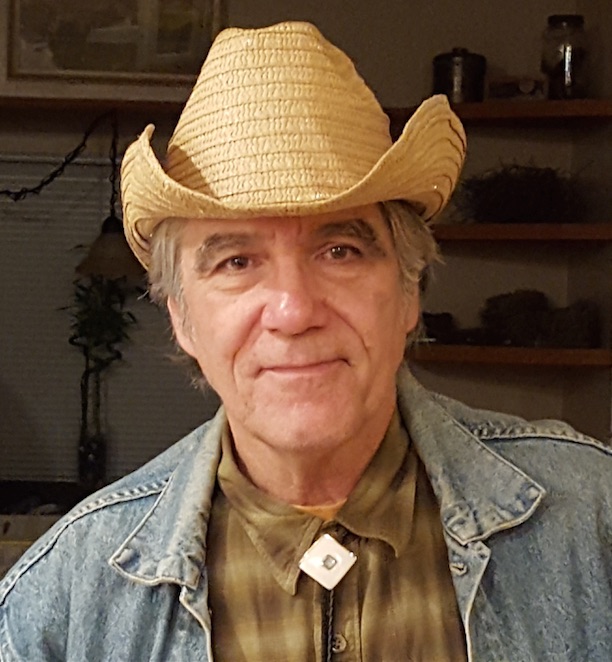(Above: The Very Little Theatre at 2350 Hilyard St. in Eugene, as it appears after a Phase 1, $1.7 million renovation of the auditorium and stage, completed in 2022 and funded by grants and donations. Phase 2, a $425,000 renovation of the scene shop and storage space, anchored with a $350,000 grant from the State of Oregon, is planned for 2025, to be followed by a hoped-for Phase 3 completion project including an elevated stage crossover and other additional space and improvements.)
By Randi Bjornstad
One way to look at the venerability of Eugene’s The Very Little Theatre is to consider that the city of Eugene itself had existed for only 67 years when the VLT first opened. What that also means is that when VLT starts its lineup of plays in September 2024, it will be Season No. 95, and with the season opening, it will mark its 500th production and its stature as one of the oldest and continuous theaters on the West Coast.
Thumbnail history of VLT
The Very Little Theatre staged its first play on March 16, 1929, five months before the official designation of the start of the Great Depression and just over seven months before the catastrophic Great Crash on Wall Street on Oct. 29 that year.
Its first production was staged in the old Heilig Theatre in downtown Eugene and, according to VLT’s historical notes, netted $4.51.
That play was You and I by Philip Barry, a popular playwright at the time who wrote the script while still a college student — it had a successful run on Broadway in 1923 — and he also later created other successes such as The Philadelphia Story, later turned into a movie starring Katharine Hepburn, Cary Grant, and James Stewart.
The Heilig Theatre had started in 1903 in downtown Eugene as a vaudeville house, on Willamette Street near East Sixth Avenue. In 1922, after the addition of movie showings, the name was changed to Heilig Theatre, which lasted until it closed in June 1973.
VLT’s early years were especially challenging, as recorded in the organization’s historical notes (online in full at TheVLT.com) that start with the production of You and I:
‟Since (VLT) could only afford to rent the building for two evenings, the group was unable to do any of the production work at the Heilig. They were forced to rehearse the play, construct the set, and assemble props and furniture outside the theatre. The sets were constructed at Friendly Hall on the University (of Oregon) campus and assembled the night of dress rehearsal. Painting of the sets took place on the afternoon of opening night, which almost resulted in a catastrophe during the performance.
“When Lettie McEwen made her first entrance, she inadvertently reached for the freshly-painted handrail for support and then drew the hand across her face, leaving a large smear of black paint. Bob Earl, the co-lead, quickly offered a handkerchief and whispered to her what she had done. She recovered, but the incident remained in the memories of those members who were there. After two seasons at the Heilig theatre, the VLT found it necessary to find a new location due to economic demands and facility restrictions.”
However, it was quite awhile after that before the theater company had a permanent home. For several years they performed in a local drugstore called the Pillbox, on East 13th Avenue near the University of Oregon, where theater patrons sat on folding chairs or packing crates, and the theater curtain was made of flour sacks.
In 1935, the theater group relocated to the Lane County Fairgrounds, performing in an exhibition hall, which lasted until VLT was able to raise money to secure its permanent location at 2350 Hilyard St., which it purchased in 1950 from the city of Eugene. Decades later, after amassing substantial public grants, private donations, and volunteer efforts, a major redesign and rebuild took place during the theater’s forced closure during the coronavirus pandemic that started in 2020. It reopened in 2022. Further major improvements are in the works.
VLT 2024-25: The 95th season lineup
- Sept. 13-29, 2024, main stage — The 2024-25 season opens, appropriately enough, with Agatha Christie’s The Mousetrap, considered the world’s longest-running stage play. In it, seven guests are present in an isolated English country house, where suddenly there is a murder, and they must try to determine who among them is a killer. Amy Weinkauf, director.
- Nov. 8-24, 2024, main stage — Side Man, by Warren Leight, tells the story of a young man named Clifford, son of a jazz trumpeter and young immigrant. Clifford narrates this memory tale of his broken family as he tries to reconcile it and its effect on his own life. Carol Dennis, director.
- Jan. 24-Feb. 29, 2025, main stage — August: Osage County, by Tracy Letts, is a Pulitzer-Prizewinning “tragicomedy” that examines lives of a troubled family in Pawhuska, Okla., including both turmoils and kindnesses. Carol McDonnell, director.
- Feb. 28-March 16, 2025, Stage Left theater space — A classic parlor mystery/comedy, The Real Inspector Hound by Tom Stoppard shows what happens when a theater critic who is supposed to review the play ends up being a member of the cast. Daniel Squire, director.
- April 4-20, 2025, main stage — Firebringer by StarKid Productions is a satirical and comical, prehistoric musical about the tension between sticking with old ways versus embracing human progress. Adrienne West, director.
- May 9-25, 2025, main stage — Misery by William Goldman, based on the Stephen King novel of the same name, tells a story of survival and madness when a prominent novelist becomes the captive of his No. 1 fan. Adam Leonard, director.
- June 13-29, 2025, main stage — Stage Kiss by Sarah Ruhl follows the careers of two actors formerly romantically connected who then are cast as romantic leads in a new play, and life suddenly may be imitating art. Maggie Hadley, director.
Ticket information: Season passes and individual shows
Online: TheVLT.com
Email: boxoffice@thevlt.com
Box office: 2350 Hilyard St., Eugene; telephone 541-344-7751

Above: The old Heilig vaudeville/movie theater in downtown Eugene, which opened in 1903 and closed permanently in 1973, served as an early stage for The Very Little Theatre.












